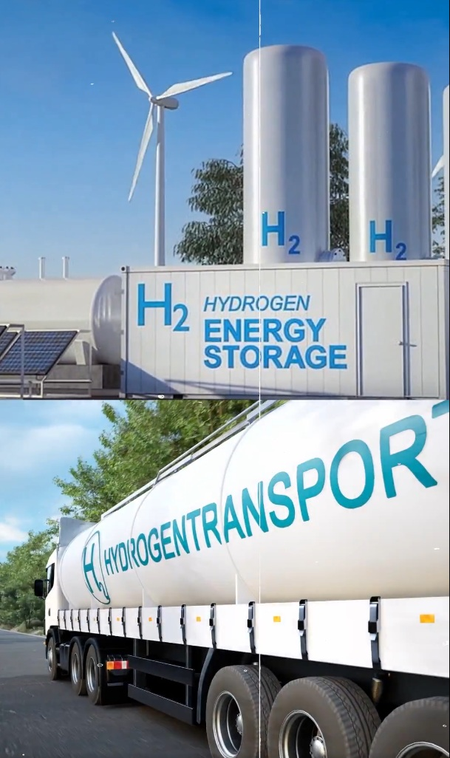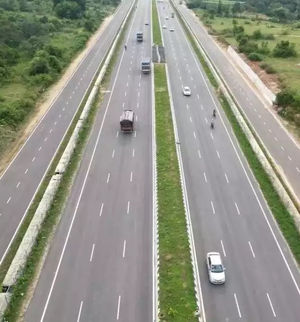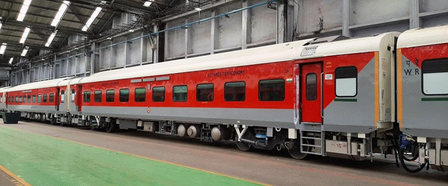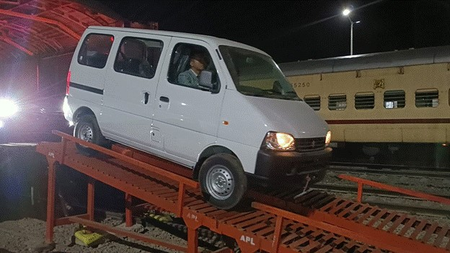
Mumbai, May 8 (IANS) The Maharashtra government on Thursday made a strong pitch before the visiting 16th Finance Commission, led by Arvind Panagariya, to enhance the tax revenue devolution from 41 per cent to 50 per cent of the divisible pool.
The government has also demanded the merger of cesses and surcharges with the principal taxes, and including the non-tax revenue in the divisible pool. The state government has further sought from the Finance Commission a special assistance of Rs 1,28,231 crore comprising a package and grants in a bid to push the state’s growth and achieve its ambitious target of a $1 trillion economy.
Chief Minister Devendra Fadnavis, accompanied by the Deputy Chief Ministers Eknath Shinde and Ajit Pawar, Minister of State for Finance Ashish Jaiswal, and bureaucrats led by the acting Chief Secretary Rajesh Kumar, met the 16th Finance Commission and demanded that the rich and performing states like Maharashtra deserve more allocation from the divisible pool.
This is on the lines of demand made by Gujarat, Haryana, Telangana, Karnataka and Tamil Nadu.
Of the 41 per cent of the central net tax to states from 2012-22 to 2025-26, Maharashtra gets 6.31 per cent. The budget estimates for 2024-25 were Rs 76,931.96 crore, and the revised estimate was Rs 81,163.34 crore.
According to the budget estimate for 2025-26, the state is expected to receive an amount of Rs 89,726.30 crore. For the period between 2025-26 to 2029-30, the state is expected to receive Rs 1.20 lakh crore annually.
Panagariya, who was accompanied by Manoj Panda (member), Soumya Kanti Ghosh (part-time member) and Ritvik Pandey (secretary), told reporters: “Maharashtra’s demands are legitimate and that will be considered when the Finance Commission submits its report by May 31 this year. Maharashtra is one of the few states run conservatively. Its tax-to-GDP ratio is 20 per cent lower than the average state. Many states have a tax-to-GDP ratio of 30 per cent. State’s fiscal deficit is below 3 per cent of the gross state domestic product with a provision of an additional half per cent with certain riders.”
He further said that the state government, during the horizontal devolution, has suggested 10 per cent weightage for the rural population, 10 per cent for the urban population (as per the 2011 census), 15 per cent for the area, 10 per cent for forest cover and ecology. It has suggested a new criterion, which is sustainable development and green energy, with 2.5 per cent weightage.
The government has also recommended a decrease in the weightage for income distance to 37.5 per cent from the present level of 45 per cent. The government has recommended a 10 per cent weightage for demographic performance (total fertility rate), 2.5 per cent for the state’s incremental contribution to India’s GDP and 2.5 per cent for tax effort.
Panagariya said the state government has sought from the Finance Commission a special assistance of Rs 1,28,231 crore. Of the Rs 1,28,231 crore, the government has sought a special package of Rs 1,17,051 crore for the development of the Mumbai Metropolitan Region economic master plan (Rs 50,000 crore) and river linking projects (Rs 67,051 crore).
The government further sought special grants of Rs 11,180 crore, comprising a new Bombay High Court complex (Rs 3,750 crore), strengthening prison infrastructure (Rs 6,500 crore), postgraduate medical students (Rs 800 crore) and promotion of eco tourism in Vidarbha (Rs 130 crore).
The state government in its memorandum said: “We seek support from the 16th Finance Commission for of larger share in the transfer of Central funds, both devolution as well as grants in aid to help the state fire new growth engines for achieving an aspiration economic growth rate. We strongly believe that support to states well placed to put the Indian economy in a higher growth trajectory will help India increase the size of the devolution cake, making more funds available to everyone, including less developed states.”
The government argued that Maharashtra is on the cusp of economic transformation with the completion of path-breaking infrastructure projects like Mumbai Trans Harbour Link, Mumbai Coastal Road phase I and Samruddhi Mahamarg and a line of ambitious infrastructure projects which are in different stages, including Navi Mumbai International Airport. Mumbai Coastal Road, Metro projects in Mumbai, Pune and Nagpur, Vadhavan Port, Pune ring road, Shaktipeeth expressway and greening energy sector by 2030.
“Maharashtra’s memorandum makes a compelling case for strategic and equitable fiscal support. As a cornerstone of India’s economic architecture, the state’s growth trajectory has national implications. The 16th Finance Commission’s support through enhanced devolution, grants in aid, special grants and fiscal innovations is essential to not only realise Maharashtra’s vision of a USD 1 trillion economy by 2030 but also to advance the national goal of a Viksit Bharat by 2047,” said the state government.
–IANS
sj/dan




